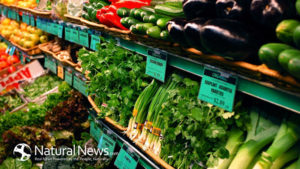 Eating healthy is becoming a big priority for people of all ages. One healthy eating habit that’s proving to be very popular these days is eating organic foods. However, some people are hesitant to try it because they think a diet based on organic foods is bound to be expensive. That is arguably the biggest myth in organic eating.
Eating healthy is becoming a big priority for people of all ages. One healthy eating habit that’s proving to be very popular these days is eating organic foods. However, some people are hesitant to try it because they think a diet based on organic foods is bound to be expensive. That is arguably the biggest myth in organic eating.
The fact is that you can still eat organic even on a tight budget. You just have to find a cheap and easy way that works for you.
1. Be a creative shopper
Some techniques can help you save a lot of money when shopping for organic food. Before making a purchase, you can check out different retailers, as well as online stores, to see which shops offer the best prices for particular organic ingredients.
Aside from comparing prices, you can also take a look at their promotions. You can also make use of items such as discount coupons to help you save some more extra cash.
2. Buy food in season
Fresh produce is one of the most integral parts of the organic eating lifestyle. The problem is that their prices tend to fluctuate with the seasons (among other things).
One great strategy that will help you save money is to shop for food that is in season. In-season fruits and vegetables tend to be at their lowest prices during this time of the year. As a bonus, in-season produce is also more nutritious and delicious!
3. Use affordable ingredients
Some people may think that just because something is labeled “organic,” it is automatically expensive. In fact, there are foods considered to be organic that won’t burn a hole in your savings account.
Consider going for affordable ingredients if you cannot afford the pricier ones. After all, it’s the process of growing them that makes food “organic”. Examples of cheap organic food include lentils, beans, eggs, seeds, and certain greens.
4. Go large
They say that bigger is better, and going large is an easy way to eat organic. There is truth to this when it comes to food shopping, especially if you are feeding multiple people. Large quantities of food are priced lower than their smaller-portioned counterparts. Also, buying in bulk is cheaper compared to buying packaged food in “individualized” portions.
You might ask yourself how you are going to deal with this massive amount of food. This is where your skills in advanced menu planning come into play.
5. Get ingredients you’ll actually use
They say that you are bound to lose what you don’t use. You have to take this same approach when you are shopping for food. It is important that you prioritize your shopping list according to what you and the members of your family are going to eat.
After all, it’s utterly useless if you’ll buy a specific ingredient at a discount if no one in your house is going to eat it. Also, it won’t hurt if you start planning in advance for leftovers and how you can use them for future meals.
MNT DT






